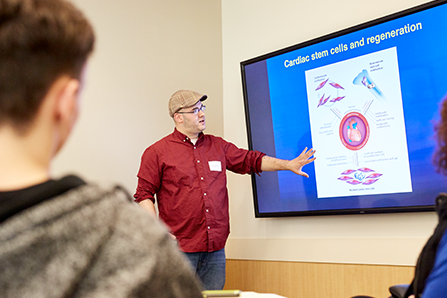TRANSLATIONAL WORKFORCE DEVELOPMENT
The CCTST Translational Workforce Development (TWD) program is designed to enhance the clinical research skills, mentorship, and productivity of clinical and translational investigators at the Academic Health Center, while developing new, and expanding existing, pipelines of future clinical and translational researchers. In addition, the program strives to enhance community awareness, interest, understanding, and involvement in clinical and translational research (CTR), and to advance the science of its teaching.
The TWD program seeks to expand the pipeline of translational researchers by exposing a diverse audience of early-stage students (high school, allied health associate students) to clinical research. Many of our pipeline engagement efforts serve the dual purpose of increasing our pipeline overall, but also improving workforce diversity. CPS and local associate degree programs enroll significantly higher percentages of diverse students than the student population of UC, so by targeting these audiences and exposing them to CTR training opportunities, we hope to recruit new and diverse talent to the field of clinical and translational research.
PROGRAM SUCCESSES
300 scholars graduated from MS and Certificate programs
MS alumni: 85% hold academic positions
Over $75 million in grant funding awarded to trainees and alumni
Services
Master of Science (MS) Program In Clinical & Translational Research (CTR)
Principal Investigator (PI) Track
The program emphasizes training in clinical epidemiology/clinical effectiveness, statistical analysis, research ethics, and grant writing that will enable clinicians to translate scientific advances into applications for improved clinical practice and human health. The ultimate goal of the program is to move practitioners from the realm of personal clinical experience to objective evidence.
Requires 30 credit hours, designed to be completed in 2 years on a part-time basis to allow trainees to meet clinical duties and other responsibilities. A thesis is also required to earn the MS degree for PIs…learn more about the PI Track.
Master of Science (MS) Program In Clinical & Translational Research (CTR)
Clinical Research Professionals (CRP) Track
The program provides a strong foundation in research methodology, project management, and regulatory processes including training in research ethics and the Institutional Review Board (IRB) process. The disciplinary purpose of the program is to provide clinical professionals with the necessary preparation for successful careers in clinical research.
Requires 30 credit hours, designed to be completed in 2-3 years on a part-time basis to allow trainees to maintain full-time work duties. A thesis or capstone project is also required to earn the MS degree for CRPs…learn more about the CRP Track.
Graduate Certificate Program In Clinical & Translational Research (CTR)
Graduate Certificate in Clinical & Translational Research
The Certificate program is designed to provide an introduction to clinical and translational research.
Requires 10 credit hours, all of which can be completed online during an 8-week summer session…learn more about the Certificate program.
GRADUATE CERTIFICATE PROGRAM IN COMMUNITY-ENGAGED RESEARCH FOR HEALTH
Graduate Certificate in Community-Engaged Research for Health
The Certificate program provides students with the skills and resources needed to conduct community-engaged research.
Requires 12 credit hours of coursework, which can be completed on a part-time basis…learn more about the Certificate program.
UNDERGraduate Certificate Program In Clinical & Translational SCIENCE (CTS)
Undergraduate Certificate in Clinical & Translational Science
The Certificate program is geared towards students currently enrolled in undergraduate programs at UC who are interested in gaining knowledge and experience in biomedical research. Course topics include: an overview of clinical and translational science, ethics, introduction to clinical trials, Good Clinical Practice (GCP), and team-based research skills. The goal of the Certificate program is to prepare graduates to enter the workforce as clinical research staff.
Requires 12 credit hours which can be completed on a part-time basis…learn more about the Certificate program.
CLINICAL RESEARCH PATHWAYS
Expand the pipeline of translational researchers by exposing a diverse audience of early-stage students to clinical research.
Engage with STEM high school students by introducing students and school staff to clinical research topics via educational programming and through job shadowing.
CTR career path materials, job shadowing and internship processes piloted with several local associate degree college campuses. We target allied health degree students and aim to regularly present clinical research career options to students who might not otherwise be aware of the research career track.
R club
The goal of the R Club Grant Program is to assist early-stage investigators in the preparation of an NIH Research Grant. Specifically, the R Club aims to improve grantsmanship by promoting clarity of thought and logical presentation of a Research Proposal – to have the greatest impact on fundability – by providing:
Workshops outlining a step-by-step guide on how to construct a Specific Aims page and a competitive Research Proposal.
Proposal examples and templates of supporting documents.
Constructive feedback on a Specific Aims page (with tracked revisions, margin comments, and key recommendations).
For a select cohort, comprehensive review of a Research Proposal, including scientific content and logical presentation of information (with tracked revisions, margin comments, and key recommendations) by a grant writer.
To learn more about R Club, please click here.
RESOURCES
VIRTUAL LEARNING
CTRonline: An online educational library with modules that are free and open to any learner.
Research 101: A set of modules designed to introduce trainees to multiple topics that are relevant to the conduct of research. The modules are offered asynchronously through Canvas. To learn more about Research 101, watch this short video or contact Jason Blackard.
Institutional tuition assistance policies
Team
Patrick Ryan, PhD, MS
Program Director, Translational Workforce Development
Professor, Biostatistics & Epidemiology
Cincinnati Children’s Hospital Medical Center
Email: patrick.ryan@cchmc.org
Jackie Knapke, PhD
Associate Director, Translational Workforce Development
Assistant Professor, Department of Family & Community Medicine
University of Cincinnati
Email: jackie.knapke@uc.edu
Jason Blackard, PhD
Pipeline & Community Outreach
Professor, Internal Medicine
University of Cincinnati
Email: jason.blackard@uc.edu
Jen Veevers, PhD
Grant Development Specialist
University of Cincinnati
Email: lowejr@ucmail.uc.edu





















